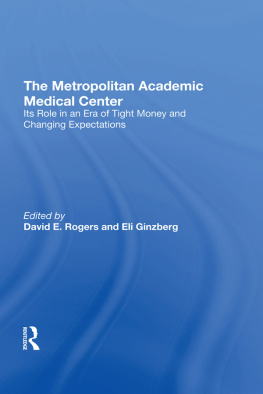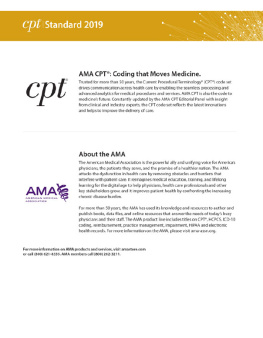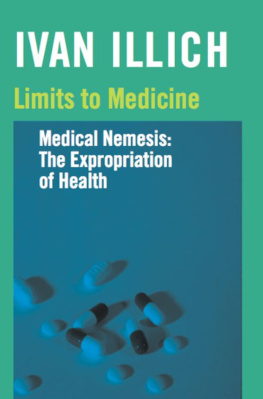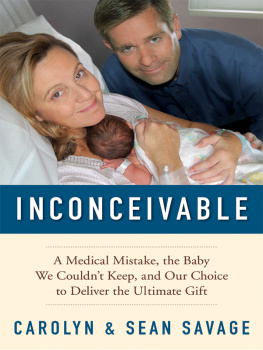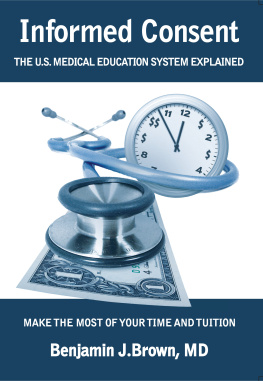Marj Milburn - Informed Choice of Medical Services: Is the Law Just?
Here you can read online Marj Milburn - Informed Choice of Medical Services: Is the Law Just? full text of the book (entire story) in english for free. Download pdf and epub, get meaning, cover and reviews about this ebook. year: 2017, publisher: Routledge, genre: Romance novel. Description of the work, (preface) as well as reviews are available. Best literature library LitArk.com created for fans of good reading and offers a wide selection of genres:
Romance novel
Science fiction
Adventure
Detective
Science
History
Home and family
Prose
Art
Politics
Computer
Non-fiction
Religion
Business
Children
Humor
Choose a favorite category and find really read worthwhile books. Enjoy immersion in the world of imagination, feel the emotions of the characters or learn something new for yourself, make an fascinating discovery.

- Book:Informed Choice of Medical Services: Is the Law Just?
- Author:
- Publisher:Routledge
- Genre:
- Year:2017
- Rating:5 / 5
- Favourites:Add to favourites
- Your mark:
- 100
- 1
- 2
- 3
- 4
- 5
Informed Choice of Medical Services: Is the Law Just?: summary, description and annotation
We offer to read an annotation, description, summary or preface (depends on what the author of the book "Informed Choice of Medical Services: Is the Law Just?" wrote himself). If you haven't found the necessary information about the book — write in the comments, we will try to find it.
Marj Milburn: author's other books
Who wrote Informed Choice of Medical Services: Is the Law Just?? Find out the surname, the name of the author of the book and a list of all author's works by series.
Informed Choice of Medical Services: Is the Law Just? — read online for free the complete book (whole text) full work
Below is the text of the book, divided by pages. System saving the place of the last page read, allows you to conveniently read the book "Informed Choice of Medical Services: Is the Law Just?" online for free, without having to search again every time where you left off. Put a bookmark, and you can go to the page where you finished reading at any time.
Font size:
Interval:
Bookmark:

| Arato v Avedon 5 Cal 4th 1172, 23 Cal Rptr 2d 131, 858 P2d 598 (1993). | |
| Battersby v Tottman and the State of South Australia (1985) 37 SASR 524. | n 19 |
| Bolam v Friern Hospital Management Committee [1957] 2 All ER 118 (QBD); [1957] 1 WLR 582. | |
| Bouvia v Superior Court (Glenchur) 225 Cal Rptr 297 (Cal App 2 Dist 1986). | |
| Breen v fVilliams 138 ALR 259. | |
| Canterbury v Spence 464 F 2d 772 (1972) (US Ct of Apps, DC Cir). | |
| Chappel v Hart [1998] HCA 55. | |
| Chatterton v Gerson [1981] 1 QB 432 (QBD). | |
| D v S (1981) 93 LSJS 405; 93 LS (SA); JS 405 (SASC). | |
| F v R (1983) 33 SASR 189. | |
| Gover v the State of South Australia and Perriam (1985) 39 SASR 543. | |
| Hart v Herron Unreported, Fisher J, Sup Ct NSW, 11 July 1980; (1984) Aust Torts Reports 80201. | |
| Lee v State of Oregon (1995) Civil No 94-6467-Ho D Ore. | n 5 |
| Natanson v Kline 354 P 2d 670 (1960). | |
| Quill v Vacco: Compassion in Dying (Gluckberg v Washington ) 117 S Ct 2293 (1997). | n 5 |
| Regina v Bolduc and Bird (1967) 61 DLR (2d) 494; (1967) 63 DLR (2d) 82. | |
| Reibl v Hughes (1980) 114 DLR (3d) 1 (Can SC), 2 SCR 880. | |
| Rodriguez v British Columbia (Attorney General ) (1993) 107 DLR (4th) 342; (1993) 7 WWR641. | n 5 |
| Rogers v Whitaker (1992) 175 CLR 479; 109 ALR 625 (HCA). | |
| Salgo v Leland Stanford Jr University Board of Trustees 154 Cal App 2d 560, 317 P 2d 170 (Dist Ct App 1957). | |
| Schloendorff v Society of New York Hospital 105 NE 92 (1914) (NY Ct of Apps). | |
| Scott v Bradford 606 P 2d 554 (Okla 1980). | n 10 |
| Sidaway v Governors of Bethlem Royal Hospital and Others [1985] 1 AC 871; 1 All ER643 (HL). | |
| Whitehousev Jordan [1980] 1 All ER 650 (HL). |
Font size:
Interval:
Bookmark:
Similar books «Informed Choice of Medical Services: Is the Law Just?»
Look at similar books to Informed Choice of Medical Services: Is the Law Just?. We have selected literature similar in name and meaning in the hope of providing readers with more options to find new, interesting, not yet read works.
Discussion, reviews of the book Informed Choice of Medical Services: Is the Law Just? and just readers' own opinions. Leave your comments, write what you think about the work, its meaning or the main characters. Specify what exactly you liked and what you didn't like, and why you think so.

